- Home
- JoAnn Ross
Sea Glass Winter Page 8
Sea Glass Winter Read online
Page 8
“Like I said, it doesn’t matter what your record was last year,” Coach Dillon said.
“Good. Because it was lame,” someone muttered.
“Yeah. It was. But here’s the good thing… you’ve nowhere to go but up. It doesn’t matter what your shooting percentage was, the number of steals or assists you made, or even your individual state ranking.”
He looked straight at Matt.
The coach might be the guy in charge, but, not wild about being singled out that way, Matt squared his shoulders and stared back.
“We’re starting with a clean slate. Right here. Right now.” The coach opened an equipment locker and pulled out a bunch of what looked like gardening gloves. “Okay, let’s get out in the gym so you can show me what you’ve got.”
12
After putting them through a series of warm-up exercises, Dillon handed out the gardening gloves, which would challenge their ball-handling ability. Then he set them to dribbling down the court, in and out around the chairs he’d set up earlier, as if they were skiers cutting across moguls.
Every so often he’d shout for the equipment manager to run out onto the hardwood floor and move the chairs closer together, which had some of the players bumping into each other.
All but one.
“Damned if that Templeton kid can’t pivot on a dime,” said Jim Thompson, the JV coach, who also taught AP senior English. “I’ve been watching players come up through the ranks for fifteen years and I’ve never seen anyone like him. He’s freaking unbelievable.”
“He’s good,” Dillon agreed. “At running and dribbling. Let’s see how he is at shooting.”
He blew the whistle, had the kids sit down on the bleachers, then, one at a time, gave each one three minutes to shoot unguarded.
Having never coached before, Dillon had gone to a clinic for high school coaches at OSU in Corvallis before school started. Despite what he kept telling everyone in town about needing more than a single year to turn the basketball program around, his takeaway from the clinic was that ideal shot statistics would be fifty percent field goals, forty percent from three, and, because it was something kids could and should practice on their off time at home, seventy-five percent free throws.
That was the ideal.
Being a realist, and knowing these players, Dillon knew to expect a lot less.
But nothing this bad.
“It’s like they’ve forgotten every damn thing they learned at camp this summer,” he muttered.
“It’s only the first practice,” Jim Thompson reminded him. “Give them time to gel.”
“Easy for you to say.” Dillon shook his head in frustration when his power forward threw up yet another brick. “You’re not the one who’s going to be living on frozen microwave dinners all season because you can’t show your face in any restaurant in town.”
“My wife’s been taking lessons from Chef Maddy,” the JV coach said. “We’re mostly eating at home these days so she can try out recipes.” It was his turn to shake his head as a ball went sailing over the top of the backboard into the end bleachers. “But I know what you mean… . Maybe Templeton’s got them spooked.”
Dillon followed the other two coaches’ gazes to the bleachers, where the new kid was sitting all alone. By choice? Or were the other boys cutting him out of the herd? Either was possible. Neither was a good omen.
“What’s the combined percentage?” he asked his assistant coach, who’d painted the SEAL saying over the door yesterday afternoon.
Don Daniels consulted the calculator on his smart-phone. “It’s down a bit from summer. “Thirty-three percent field goals and twenty from three.”
“You’ve got to be freaking kidding me.”
It was a rhetorical question. Don Daniels taught algebra and trig. He could undoubtedly do those percentages in his head. He was also the baseball coach. Since the district budget didn’t allow for assistant coaches, with the basketball season ending in February and baseball beginning in March, Don was able to serve as an unpaid assistant and scorekeeper for Dillon, while Dillon returned the favor.
“I wish I were.” He looked as pessimistic as Dillon felt.
They’d gone through the returning players. Which left them with one guy. “Templeton.” Dillon took a ball from the center coming off the floor and threw it to the Beverly Hills phenom. “Here’s your chance to show us what you’ve got. But before you go out on the floor, tuck your shirt in.”
“It’s not a real game,” the kid countered.
There were strictly enforced rules in high school basketball; playing with your shirt tucked in was one of them.
“That doesn’t matter. I don’t know how they do it in California, but here at Shelter Bay, the coach—who would be me—expects shirts to be tucked in during scrimmages. And, although if you do make the team, I’m not going to spend the entire season explaining myself to you, just this once I will, so you’ll understand I always have a reason when I tell you to do something.
“If you leave your shirt untucked during practice, it screws up your form. So. Tuck. The. Damn. Shirt. In… . Now.”
It was obvious from his lowered brow that Templeton wasn’t happy about the criticism, but without another word of argument, he did as instructed.
Dillon didn’t know what type of competition Matthew Templeton had faced back in L.A., but so far he was living up to his press. It was as if the kid had wings on his rubber-soled shoes and a computer in his brain as he proceeded to shoot a dozen layups. First from the right, then the middle, then left of the court.
“Damned if he isn’t ambidextrous,” Jim Thompson said as the kid switched back and forth from his left to his right hand. Again and again, never missing a beat. “If you’re not going to put him on varsity, I could sure use him.”
“As a sophomore, he belongs on JV.” Though his skill set was definitely varsity level. “Let’s see some jump shots. From ten, then twelve feet out,” Dillon called out.
It was the same thing. The pebbled brown ball sailed through the air, right into the hoop.
Swish.
Nothing but net.
“Twenty feet,” Dillon upped the challenge.
It didn’t make a difference.
Swish from the left. Center. Right. On the rare occasion the ball did hit the rim, Templeton set himself up to recover his own rebound, then swish!
“Unbelievable.” Don hit the keypad of his phone again. “While managing to get off twelve percent more shots than the average of what we’ve seen from the entire group of returning varsity players, he just single-handedly pulled you back up to fifty-six percent on field goals. And forty-four on three-pointers.”
Dillon could hear the buzz of conversation behind him on the bench. He glanced back. The kids who were talking did not look all that happy to have a possible savior land in their midst. Others were sitting there quietly dumbfounded, mouths half-open at the shooting exhibition taking place on the court. Only one kid, Johnny Tiernan-St. James, who’d taken Dillon’s clinic at summer basketball camp, seemed to be enjoying the performance.
“No point in wasting time having him shoot free throws, which he can probably make blindfolded,” Dillon decided. “Let’s put him in a scrimmage and see his defensive skills.”
There was no point in having a scoring machine on your team if the other team was still able to outshoot you. Which, from what he’d been able to tell, was pretty much what had happened at Beverly Hills High.
He blew the whistle, motioned Templeton off the court, then had kids line up and call off numbers. “Even numbers will play shirts. Odd, skins.”
He set the assignments, putting Templeton up against Dirk Martin, a returning senior who’d proven to be the best shooter at summer camp. He was also a power player who could plow his way to the basket, drawing fouls from frustrated opponents assigned to guard him.
Not today. Although growth spurts like Templeton’s usually tended to result in a lack of finesse, the sophomore mana
ged to tip the ball away from the older, more experienced player as if he were merely flicking away a fly.
After eight blocked shots in a row, it was obvious the senior was getting frustrated. Dropping his shoulder and using his superior bulk, he barreled forward, trying to force the ball inside.
Not only did Templeton not give an inch, but each time Martin made the move, the kid cut him off and forced him to lose control of the ball.
“He’s definitely a complete player,” Don said.
He’d no sooner said that when, deftly switching from defense to offense, Templeton stole a pass from Martin to Brendan Cooper, another senior. Then, as graceful as a gazelle, he switched hands on the dribble back down the court.
There was some elbowing beneath the basket, and as Martin landed with a thud on his back, Templeton went in for the layup.
Swish.
Dirk flew back up onto his sneaker-clad feet like a rocket. “That’s a fucking foul,” he shouted in Templeton’s face.
“I just brushed your elbow, which was trying to land in my ribs.” Outweighed by probably twenty pounds, Templeton still stood his ground and thrust out his chin. “If you’re looking for an Academy Award nomination for best faked-foul fall by an asshole, then I’ll nominate you.”
“I wasn’t faking.” The senior’s face turned the blazing scarlet of a boiled crab. “You know damn well you charged. And everyone saw you.”
They were standing face-to-face, neither one looking inclined to give an inch.
Dillon had always had a low boredom threshold, one of the reasons he’d enjoyed EOD, where every mission could prove a challenge. He might not make all the fans in Shelter Bay happy by taking his team to state this first season, but at least he wasn’t going to be bored.
Deciding that he should probably intervene before those fists balled at the two players’ sides began swinging and he ended up with a melee on his hands, he blew his whistle, then walked out onto the court, through the semicircle of kids watching the showdown.
The shirts on the even-numbered players were soaked with perspiration, clinging to their bodies. The other players’ skin glistened with sweat. More sweat rolled down all their faces.
“That’s enough. For what it’s worth, I played high school ball in Texas for a real hard-ass of a coach. On away games we’d go to schools where anyone could tell the players ran the place. We’d bitch about how we’d have to run up and down the bleachers whenever we mouthed off or got in a fight with one of our teammates.
“I don’t think there was a single player on the team who didn’t spend four years believing we’d been dealt a lousy hand to land in such a tough program.
“But later on, when I was downrange, crawling on my belly across a field loaded with land mines, working to keep my focus so I didn’t blow up myself and all the other guys around me while taking apart an IED, I was damn grateful for that discipline Coach Randall hammered into me… .
“So here’s the deal. This team is going to be run by the grown-ups. Shelter Bay players don’t trash-talk with opponents, and they don’t disrespect or get in fights with teammates.”
Dillon didn’t raise his voice. Given the fact that very few, if any, people had grown up in families like the Cosbys or the Waltons, it was logical to assume that some of these kids had learned to tune out yelling.
So he kept his tone quiet. Calm. But firm enough to let everyone know that he damn well meant business.
“Shelter Bay players don’t—ever—argue with an official,” he continued. “Try it and you’ll find yourself suspended from the team so fast you’ll think you’ve been shot into hyperspace.
“The Dolphins may not take state, like a lot of people around here keep talking about, but we are going to be a team people look up to. A team admired for our poise on the court and our leadership off the court. Each and every one of you is going to set an example for every student in this school. And for the younger kids, many of whom are your brothers and sisters, who come to the games and dream of someday wearing a Dolphins letterman jacket.
“There will be rules. And I don’t care if you’re Wilt Chamberlain reincarnated—every Dolphin player will be held accountable. And if those rules I just stated are broken, believe me, there will be consequences.”
He waved an arm around the gym. “This isn’t your court. It’s mine.” He jabbed a thumb against his chest to drive his point home. “And on this court, we play by my rules. And the first rule is from Coach Wooden’s handbook—the star of the team is the team. We supersedes me. The Dolphins will be Coach Wooden’s type of team at all times. On the court and off. Anyone who doesn’t think they can get with the program is invited to leave now.”
He paused. Waited. The only sounds were a few squeaks from sneakers’ toes being rubbed onto the polished wood floor. Not a single player said a word. Or moved to take Dillon up on his offer.
“Good.” He nodded his satisfaction. “Now, go shower, change, and come back here and wait. We’re going to have ourselves a little discussion here; then I’ll talk to each of you individually in my office.”
One of the players tentatively raised his hand.
“Travis,” Dillon recognized the small forward.
“Are you choosing the team today?”
“That’s the plan.”
Everyone exchanged looks.
Dillon knew such a quick decision wasn’t always the case, but he knew all but one of the players from summer camp and had seen all he needed to see. “We’ve got a lot of work to do before our first game,” he said. “No point in wasting time making you all wait around to see who made the cut.”
They’d strutted into the gym like the rock stars they were in their own male teenage minds. Having been there himself, Dillon could empathize. But the way he saw it, no one had hired him to be Mr. Rogers.
“Well,” Jim said as the kids all walked out, far more silently than they’d entered. “That was interesting.”
“You think I was too hard on them?” The way the air had gone out of their sails left Dillon feeling a lot like Voldemort from the Harry Potter DVD he had watched while stationed out in the middle of nowhere near the Pakistan border. Though he would’ve preferred an action flick with a lot of explosions, beggars couldn’t be choosers, downrange especially.
Damn. Coaching a bunch of kids was turning out to be a lot tougher than leading troops who’d already been through basic training, where someone else got to yell at them.
“Someone needed to be,” the JV coach assured him. “Pete Houston was a good guy. Everyone in town liked him. Even Ken Curtis, who, if you cut him, probably bleeds Dolphin blue. But it was obvious to everyone that he’d burned out on coaching a long time ago and was mostly just going through the motions until he got enough years in for retirement.”
“No one thought about replacing him?”
“Like I said, everyone liked him,” Don said with shrug. “He’d played here himself as a kid. To be perfectly honest, I don’t think anyone but Curtis ever had any real expectations for the team.”
“Including the players themselves.” Dillon had already figured that out for himself.
“Yeah. It wasn’t that they didn’t try,” Jim said. “But they weren’t getting what they needed to succeed. And I seriously doubt there was a guy on the court who ever worried about pissing Pete off.”
“I’m not a hard-ass,” Dillon said. “But I was hired to do a job. And I’m damn well going to do it to the best of my ability.”
“I doubt there was a person who was in the gym earlier who doubts that,” Don said.
“What are you doing about Templeton?” Jim asked.
“I met his mom before school and got a good vibe about his home situation.” Dillon saw no reason to mention that he hadn’t been thinking about Claire Templeton’s maternal vibes the entire time. “So I’m going to take a chance and try him on varsity.”
“As much as I’d love to have him on JV, I can’t argue with that decision. The kid
’s going to have college coaches drooling all over him for the next three years.”
“True. And we need to be prepared for that.” He turned toward Don. “We also need to assure the other guys that each and every one of them is vital to the season’s success. Because jealousy could end up tearing the team apart before we have our first game.”
Which was something Dillon was determined to avoid.
Somehow.
13
They were freaking freezing him out. A couple of kids, including Johnny, had complimented him on his shooting, and the one who’d thrown the French fry at lunch, then made a joke the coach hadn’t appreciated, had even asked him about how he managed to switch hands like that on the run, but then Dickhead Dirk had shot them all the evil eye, which shut them up.
Shields had immediately gone up. Leaving Matt on the outside.
There’d been a few minutes, when he’d been flying around the court, when he’d felt back in the groove. As if, just maybe, this move might work out.
Yeah. Right.
He was—no big surprise—the last guy to get called into the cluttered broom closet Coach Slater called an office. He’d done the math, and from the results, he knew there was one spot left on the varsity team. Which meant, Matt thought with a burst of the first excitement he’d felt in weeks, he was in. Not that there’d ever been a question.
After telling him to sit down in the chair on the other side of the desk, the coach tilted back in his chair, rested his elbows on the wooden arms, folded his hands beneath his chin, and gave Matt a long, thoughtful look.
“So,” he finally said, just when Matt was about to burst out of his skin, “how are you liking the Northwest so far?”
Matt shrugged. “We only got here this weekend. But it it’s okay.” If you like rain and trees.
“But quite a change for you.”
No shit, Sherlock. “Yes, sir.”
“You did well in lab today. I can see why you were named an athlete-scholar back at your old school.”

 Magnolia Moon
Magnolia Moon Summer on Mirror Lake
Summer on Mirror Lake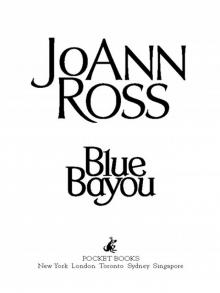 Blue Bayou
Blue Bayou Champagne and Moonlight
Champagne and Moonlight No Regrets
No Regrets Long Road Home
Long Road Home Southern Comforts
Southern Comforts Herons Landing
Herons Landing Untamed
Untamed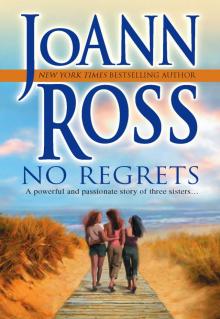 No Regrets (Mira Romance)
No Regrets (Mira Romance)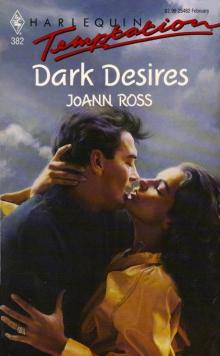 Dark Desires
Dark Desires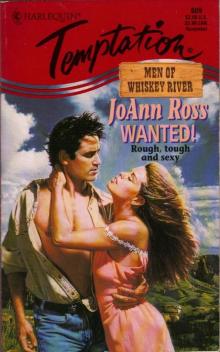 Wanted!
Wanted! River Road
River Road Midnight Runaway
Midnight Runaway The Long Way Back
The Long Way Back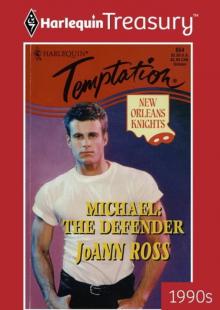 Michael: The Defender
Michael: The Defender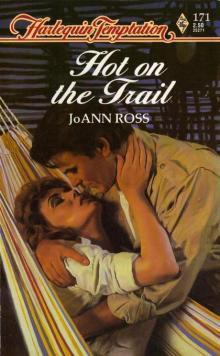 Hot on the Trail
Hot on the Trail When I'm With You
When I'm With You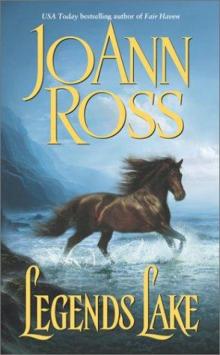 Legends Lake
Legends Lake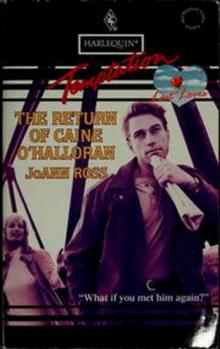 The Return of Caine O'Halloran
The Return of Caine O'Halloran Dance with a Dynasty
Dance with a Dynasty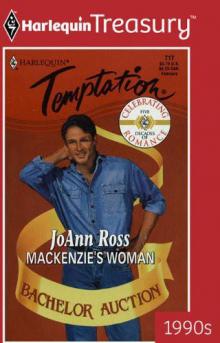 MacKenzie's Woman
MacKenzie's Woman Impulse
Impulse Sunset Point: A Shelter Bay Novel
Sunset Point: A Shelter Bay Novel You Again: A Shelter Bay novella (Shelter Bay series Book 8)
You Again: A Shelter Bay novella (Shelter Bay series Book 8)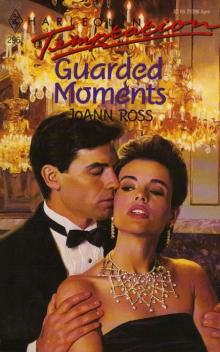 Guarded Moments
Guarded Moments No Safe Place
No Safe Place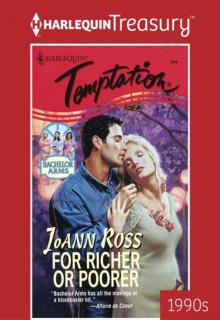 For Richer or Poorer
For Richer or Poorer Private Passions
Private Passions Once Upon a Wedding
Once Upon a Wedding Snowfall on Lighthouse Lane
Snowfall on Lighthouse Lane Christmas on Main Street
Christmas on Main Street A Place in Time (Rum Runner Island Book 1)
A Place in Time (Rum Runner Island Book 1)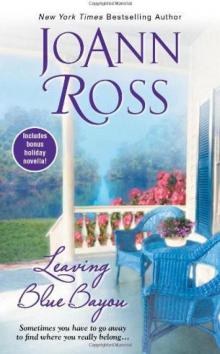 Leaving Blue Bayou
Leaving Blue Bayou The Return of Caine O'Halloran: Hard Choices
The Return of Caine O'Halloran: Hard Choices Lucky in Love
Lucky in Love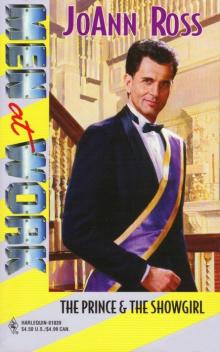 The Prince & The Showgirl
The Prince & The Showgirl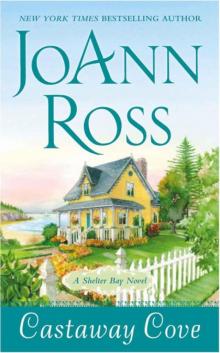 Castaway Cove
Castaway Cove A Woman's Heart
A Woman's Heart One Summer
One Summer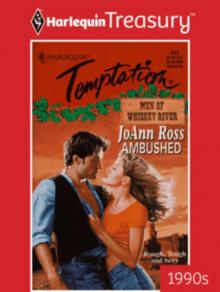 Ambushed
Ambushed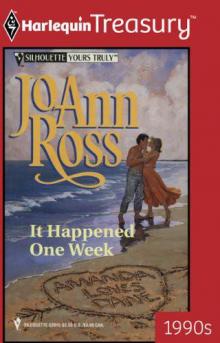 It Happened One Week
It Happened One Week Home by the Sea
Home by the Sea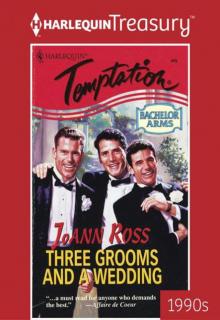 Three Grooms and a Wedding
Three Grooms and a Wedding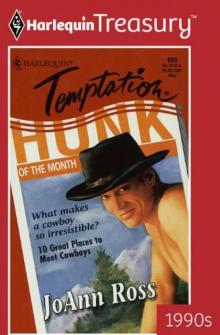 Hunk of the Month
Hunk of the Month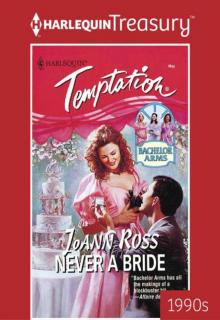 Never a Bride
Never a Bride Sun Kissed
Sun Kissed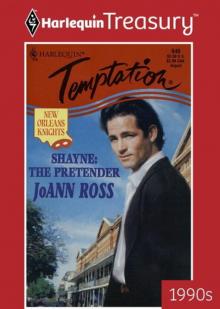 Shayne: The Pretender
Shayne: The Pretender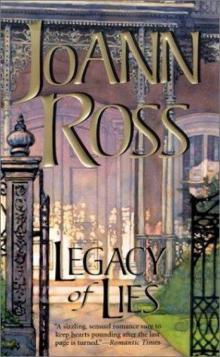 Legacy of Lies
Legacy of Lies Far Harbor
Far Harbor Finn
Finn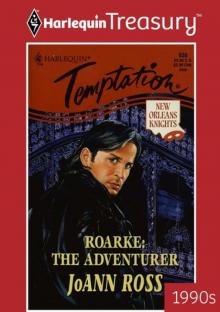 Roarke: The Adventurer
Roarke: The Adventurer I Do, I Do...For Now (Harlequin Love and Laugher)
I Do, I Do...For Now (Harlequin Love and Laugher) Briarwood Cottage
Briarwood Cottage On Lavender Lane
On Lavender Lane Sea Glass Winter
Sea Glass Winter River's Bend
River's Bend Christmas in Shelter Bay
Christmas in Shelter Bay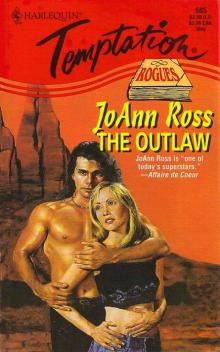 The Outlaw
The Outlaw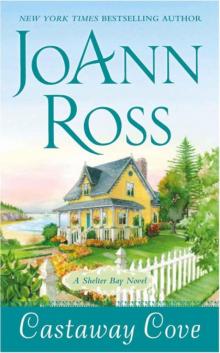 Castaway Cove (2013)
Castaway Cove (2013) Confessions
Confessions Moonshell Beach: A Shelter Bay Novel
Moonshell Beach: A Shelter Bay Novel